Sharing learning from our Protein Challenge

In our opening blog we promised to explore four key themes that are showing up as buzzwords about the future of food: Innovation, Resilience, Diversity, and Net Zero. As we’ve delved into each of these, we have argued that done well, they could be enablers of deeper transformation towards a future-fit food system, addressing multiple interconnected social, ecological and economic challenges and opportunities. Despite the recognition at COP27, of the need for ambitious commitment on these issues and with promises of investment, there are also risks of them falling short, reinforcing the flaws and failings of our current food system, and failing to deliver deep enough or fast enough progress needed.
Forum for the Future kicked off the Protein Challenge in 2015, in collaboration with food businesses and other partners that sensed a need to take a more systemic approach to the challenges and opportunities emerging around protein. Together we mapped the global protein system, its interconnections and pressure points, and identified key areas where collaboration was needed to unlock positive change for a future-fit protein system. We tackled major impact areas, and much of what we learned and tested has helped to shape the thinking and approaches of protein stakeholders across the world since then. It has also provided a foundation for Forum for the Future’s new strategy, laser focusing Forum’s contribution to shaping an ambitious, deep and rapid transition towards a just and regenerative food system.
Through our work on the Protein Challenge, we helped to reframe the narrative around protein and sustainability, from unhelpful arguments about “good” vs “bad” proteins, to a focus on a shared vision of desirable outcomes (tasty, affordable, nutritious and sustainable protein for all – who wouldn’t want that?). By bringing together a wide range of stakeholders, we demonstrated the value of collaboration on complex questions – highlighting the importance of considering multiple perspectives, needs and interests to develop better solutions for all, and importantly, joining up the dots from production through to consumption.
Through the Challenge, we identified learnings about the nature of the change that’s needed in the food system and how to drive it, including:
- Collaboration of different kinds is critical to deeper impact, fostering shared new ideas and perspectives, whilst tackling thorny issues effectively. Ambitious leadership by individual trailblazing organisations is fantastic, but not enough.
- However, “collaboration fatigue” is also a very real phenomenon: how can we ensure collaboration is designed to have clear impact and shared benefits, so changemakers don’t give up on participation and stay engaged?
- Culture and mindset are fundamental to driving positive change, and ambition is everything – how can we ensure changemakers and decision-makers aim higher, to take responsibility for the social and environmental impact of their choices, and to get to thriving social and ecological systems through and for food
- We must consider equity throughout our work, from the experience of those in the food system supply chain to how food is distributed
These insights mirror wider opinions that we are seeing in our changemaker network when we asked them what is needed to build a future fit food system:

It is also important to avoid falling into certain traps:
- Working in silos, which slows down or blocks valuable shared learning across individuals, organisations, value chains, sectors.
- A lack of holistic thinking about the food system; not considering it as a whole or seeing its many interconnections.
- Getting stuck in narrow narratives about the solution(s) needed for a just and regenerative future
Expanding on our work
Two key impact areas identified were the massive climate impact of animal feed, and the potential for more environmentally friendly dietary choices:
The Feed Compass project provided a decision-making framework to drive more sustainable choices of animal feed. Our pilots in US schools invited the food industry to develop scalable, healthy, plant-based school lunch options and collaborated with school communities to understand how to ensure these options are attractive, acceptable and ultimately “normal” for young people. In the UK, we developed teaching materials and insights to support embedding future-fit skills and knowledge into mainstream culinary training, so that chefs and other food professionals are equipped to create healthy, sustainable, tasty and appealing meals and products.
The focus on protein has grown and adapted internationally, so our work has evolved toward future-focused regions such as SE Asia. There, we are exploring how financial actors and innovators in Southeast Asia could become “protein visionaries”, building a just transition to a resilient protein system in the region that delivers food security and creates value in future-fit, holistic, and regenerative ways. And our collaborative, interactive online Action Sprints generated new insights on how plant-based innovation can support a just transition to healthy, sustainable diets, and on the future of salmon feed.
Since we originally launched the Protein Challenge, efforts to shape a sustainable future protein system have expanded across innovation, collaboration and policy. We will refocus on five key leverage points that will help shape the food transition, weaving all we have learned through the Protein Challenge into these new areas for high-impact activation:
- Reframing food system narratives and ambitions: for example by supporting food businesses to develop their change-making purpose and transformational strategies.
- Accelerating the shift to regenerative agriculture: for example through our US and UK Growing Our Future initiatives and new work in India.
- Reconfiguring value chains to deliver regenerative and just outcomes: working with business and through collaborations to explore the new business models and market pathways needed for regenerative products.
- Food landscape-level transformation: for example collaborations to rethink land-use in particular geographies.
- Healthy, diverse diets, available and affordable for all: for example working with industry and others to accelerate joined-up, ambitious action that enables sustainable nutrition for all.
We will continue to work with a broad range of ambitious actors across the food system, ranging from businesses, investors, innovators, policy-makers, to farmers, thought-leaders, civil society and others – to shape the quality, nature and pace of the inevitable food system transformation ahead.
How can you get involved?
We would love to hear from you, about where we can support your ambitions to deliver a just, resilient future for food. Whether you are an ambitious food changemaker intent on designing strategies for Net Zero done well; on engaging with deep diversity; on nurturing innovation that delivers what the world really needs; on building true resilience along your full value chain; or on helping to root food businesses and other actors firmly in the purpose and action of delivering sustainable nutrition for all – please share your thoughts on the key themes raised in this project, through the Futures Centre.
Are you interested in partnering with Forum for the Future on our wider food system work?
- Food System Transformation
By 2030 we want to have catalysed a new system in which food is produced and consumed in a way that is affordable, healthy and good for the planet.- Please contact Lesley Mitchell: [Global Strategic Lead Food] at L.Mitchell@forumforthefuture.org for more information.
- Please contact Lesley Mitchell: [Global Strategic Lead Food] at L.Mitchell@forumforthefuture.org for more information.
- Reimagining the Future of Value Chains
Bringing together diverse perspectives from the marginalised to the mainstream, the Future of Value Chains Inquiry, will explore what the future context for agricultural value chains may look like, and alternative models that can enable them to survive and thrive while embedding just and regenerative principles.- Please contact Neil Walker [Value Chains Change Designer] at n.walker@forumforthefuture.org for more information.
- Please contact Neil Walker [Value Chains Change Designer] at n.walker@forumforthefuture.org for more information.
- Growing our Future
Working to cultivate and accelerate the transition to a just and regenerative agriculture system in the US through deep collaboration.- Please contact Michelle Stearn [Sustainability Strategist] at m.stearn@forumforthefuture.org for more information
- Please contact Michelle Stearn [Sustainability Strategist] at m.stearn@forumforthefuture.org for more information
- Protein Challenge Southeast Asia
In Southeast Asia we will continue to enable visionary innovators and investors to explore how to transform the region’s protein system to deliver just and regenerative outcomes for people and the planet.- Please contact Vi Nguyen [Principal Strategist] at v.nguyen@forumforthefuture.org to find out more and join
About Recipes for food system transformation
From November 2022 to March 2023, we published a series of insights into how to drive more transformative change in the global food system. We drew on a range of perspectives, including Forum’s own work on the future of food, in particular. what we have learnt from our multiple initiatives on the future of protein, as well as insights emerging from COP27 and other events, initiatives, and conversations happening around the world. We delved into what is stopping us all from achieving more positive change, what is working, and what more is needed to shape the transitions needed for the world to thrive.
We hope this will inspire change-makers across the food system to think differently about what action they can take and how – join us in this conversation and tell us what you think!
This Live Research is being hosted by Forum for the Future’s Great Protein Transformation Challenge, which has been kindly supported by Hershey’s, Nestle, Volac and WWF. The views shared here do not necessarily reflect the views of these supporting organisations.
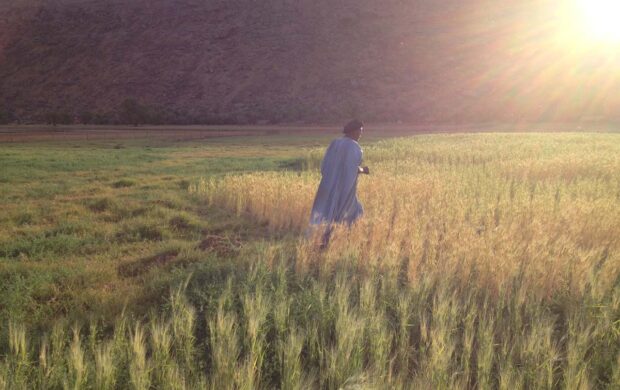


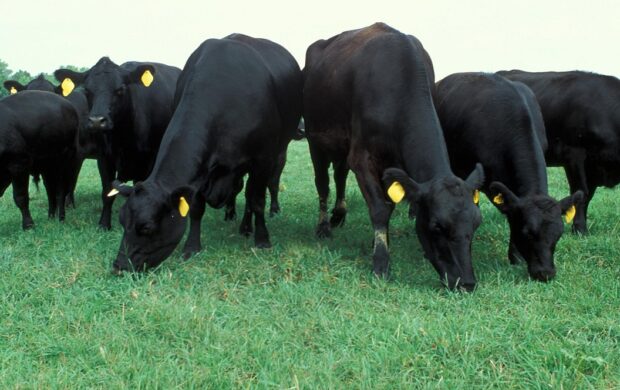





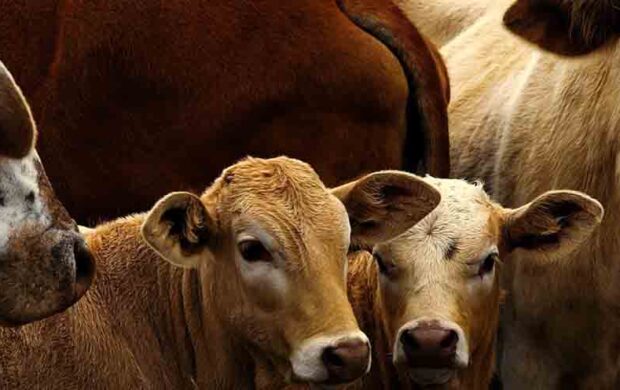
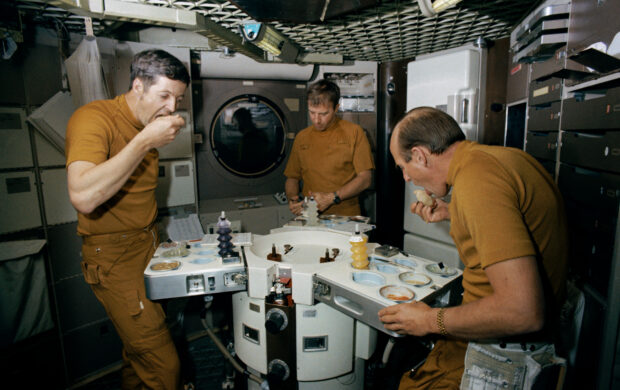
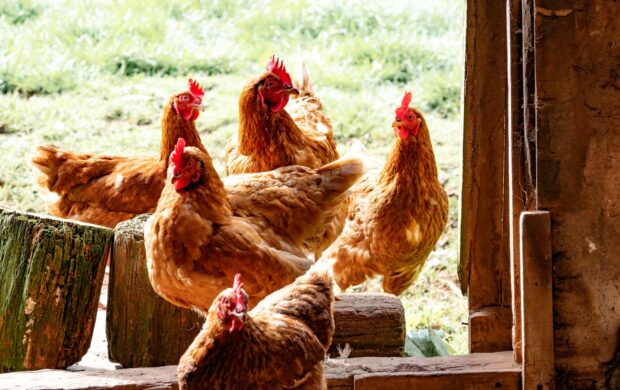

Join discussion